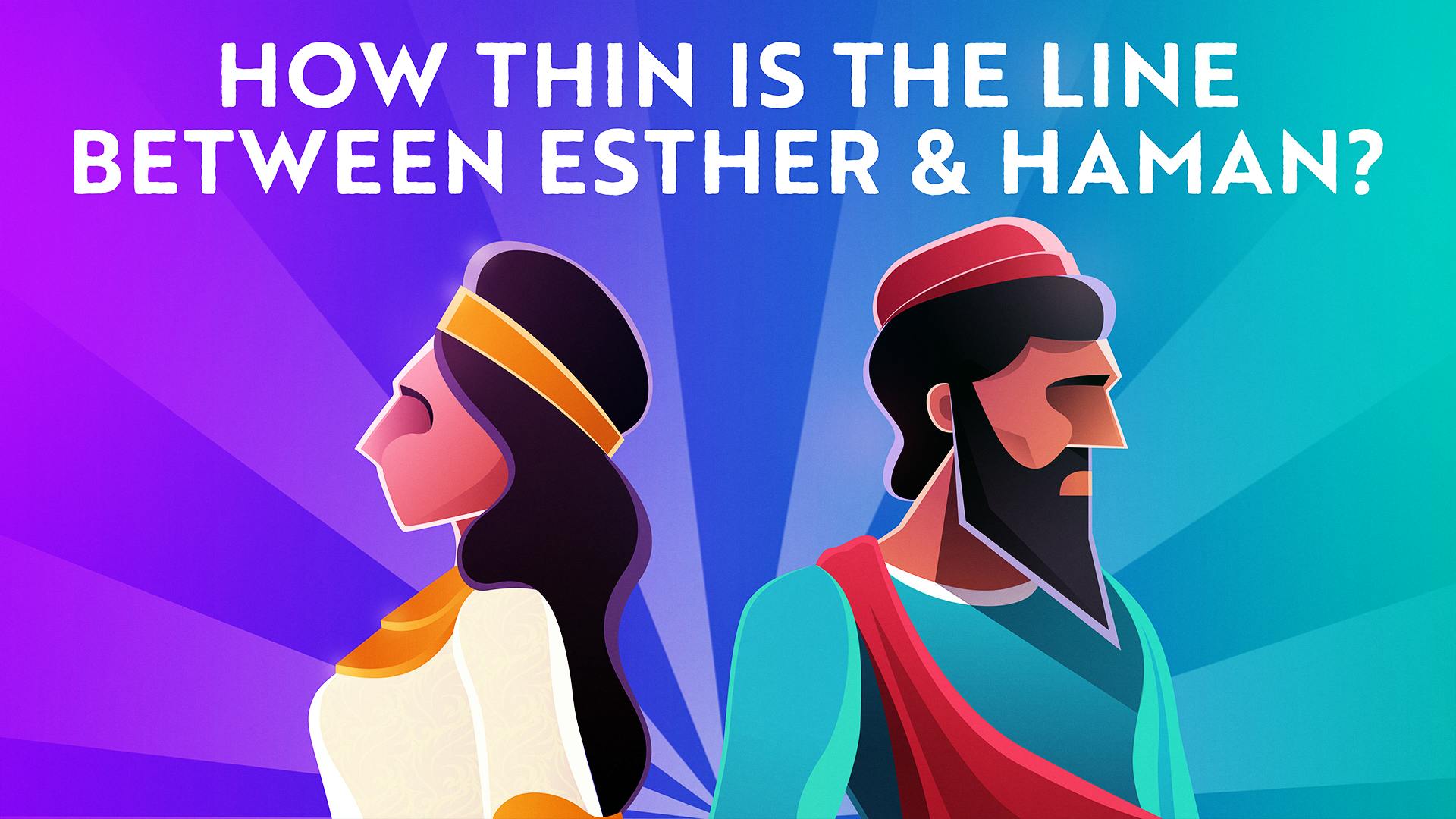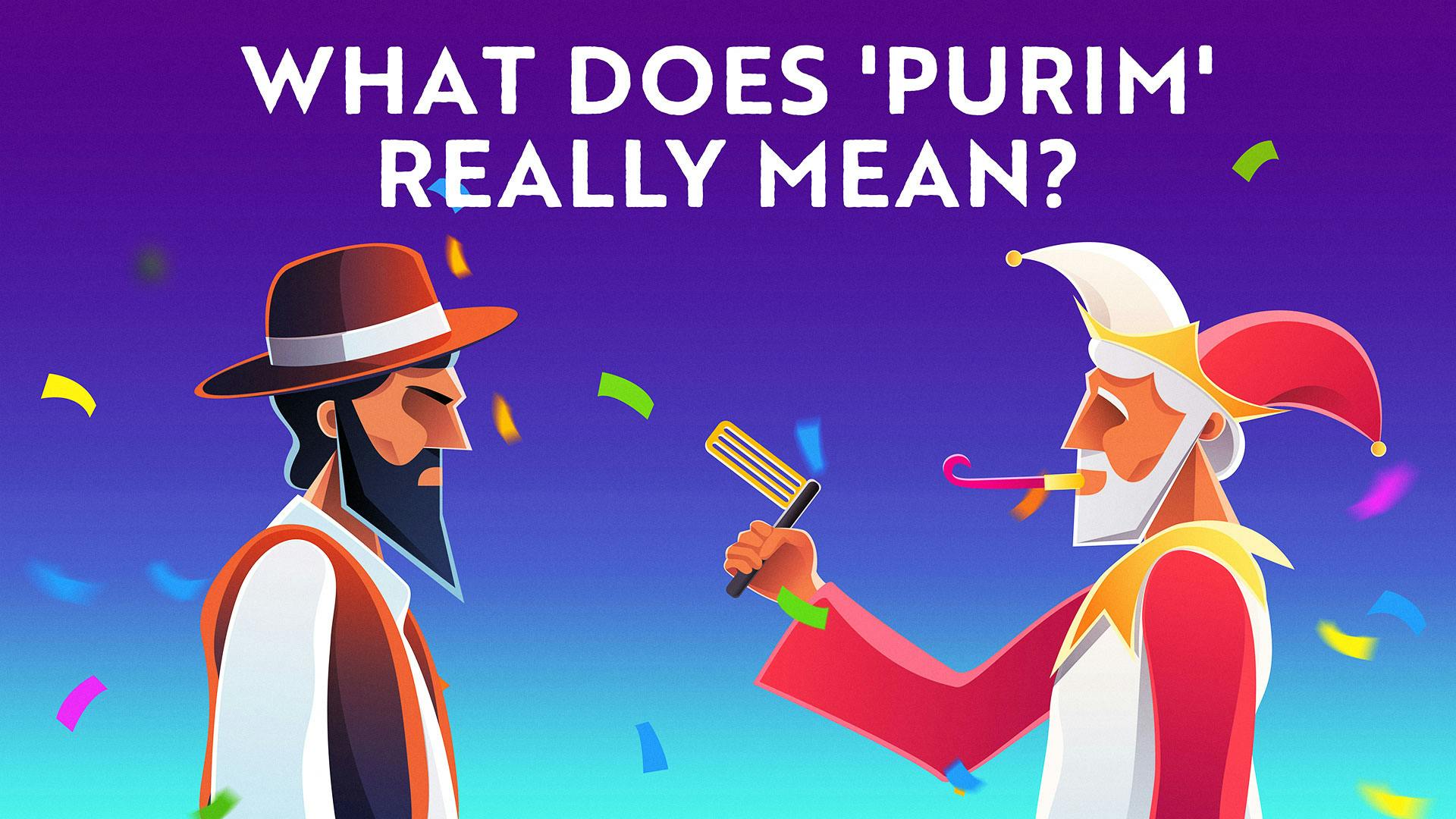Book of Iyov
The Deeper Meaning and Message of the Book of Job
BY Sarah Rashba | July 16, 2024 | 5 Minute Read

Introduction to the Book of Job
The Book of Job (אִיוֹב) is one of the books of the Ketuvim (Writings) in the Tanach (Hebrew Bible). It addresses themes of suffering, justice, and the relationship between God and humanity. The narrative centers around Job, a righteous man who endures immense suffering which challenges his understanding of God's justice.
The Book of Job has had a significant historical influence within Jewish philosophy, and has influenced discussions of theodicy throughout the generations. It has also become a part of our ritual and culture and is traditionally studied on Tisha B'Av, the Jewish day of mourning. We will talk more about unpacking the meaning of this book and its relevance to Tisha B’Av, but first, let's examine the structure.
Looking for more?
We have hours of delightful videos and podcasts to enhance your Purim celebration this year.
Structure
- Prologue (Chapters 1-2): The narrative begins with a man named Job, who has it all: Health, lots of children, wealth, etc. And Job is a righteous man. But Satan isn’t happy with this. He turns to God and claims that Job is only so righteous because God has been so kind to him. So God agrees to allow Satan to test Job by taking away his wealth, then his children, and finally his health. All of this is not enough to shake Job’s faith, but it does send him into a deep depression.
- Dialogues (Chapters 3-37): The bulk of the book consists of a series of dialogues between Job and his friends who come to comfort him. Job, trying to make sense of his crumbling world, grapples with three irreconcilable truths: God’s goodness, Job’s suffering, and Job’s own righteousness. Job’s friends assume that Job must have been mistaken about his righteousness, and urge him to search for a fault within himself that would explain why God allowed him to suffer. Job, however, remains confident in his innocence leaving him torn between his conception of God and the reality he experiences.
- God’s Response (Chapters 38-41): God answers Job out of a whirlwind, explaining to Job that he wasn’t there when God created the universe and doesn’t understand anything about the way God governs it. Job humbly acknowledges his ignorance and submits to God's greater wisdom.
- Epilogue (Chapter 42): After Job submits to God, God criticizes Job’s friends for not “speaking about Me correctly” as Job did (v. 7). Finally, God restores Job’s fortunes, granting him twice as much as he had before and blessing him with a long and prosperous life.
Why Do We Read Job on Tisha B'Av?
Tisha B'Av (the 9th of Av) is a day of mourning and fasting commemorating the destruction of the First and Second Temples in Jerusalem, among other calamities in Jewish history.
The Book of Job is traditionally read on Tisha B'Av, because its themes resonate deeply with the day's somber reflections. Job's story of immense suffering and loss mirrors the mourning and destruction remembered on Tisha B'Av. The book's exploration of theodicy—the question of why a just God permits evil—aligns with the day’s contemplation of divine justice and human suffering. Additionally, despite the intense suffering, Job's eventual restoration offers a message of hope and resilience amidst the mourning.
Understand the Book of Job
If you're intrigued by the Book of Job, and want to go deeper into its complexities and profound message, check out Rabbi David Fohrman's podcast: "Am I Allowed To Be Angry at God?". In this podcast, Rabbi Fohrman, a noted biblical scholar and teacher, applies his expertise in close reading to delve into the heart of Job's questions and offer a thought-provoking interpretation that will enrich your understanding of this ancient and deeply philosophical text.
More Tisha B'Av Content
What is Aleph Beta?
Aleph Beta is a unique kind of Torah library. Led by our founder, Rabbi David Fohrman, we are dedicated to high-level, textual Torah learning for adults that is intellectually and spiritually sophisticated, that enlivens your Jewish practice and helps you forge a deeper connection to God. Whether you’ve been learning in yeshiva for years or you’re just beginning your Torah journey, you’re sure to find something meaningful and surprising waiting for you here.
Browse our library of over 1,000 beautifully produced animated videos, podcasts, deep dive courses, and printable guides. Topics include the weekly parsha, Jewish holidays & fast days, laws & mitzvot, prayers, relationships, big philosophical ideas and more. Have something to say at the Shabbos table that will amaze your family and guests and bring deep meaning into their lives.





